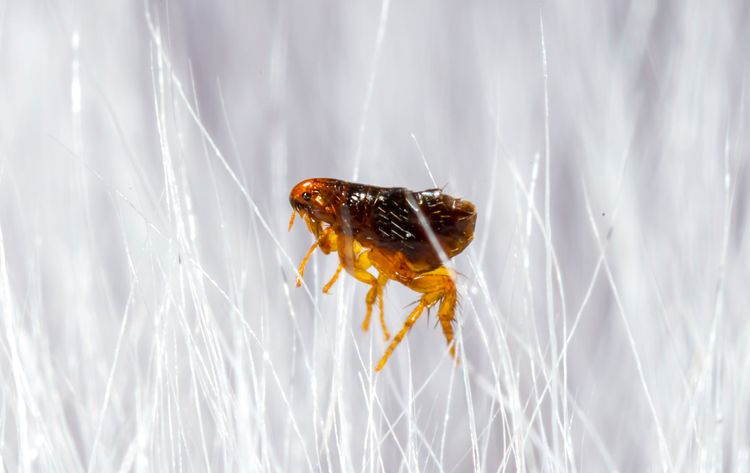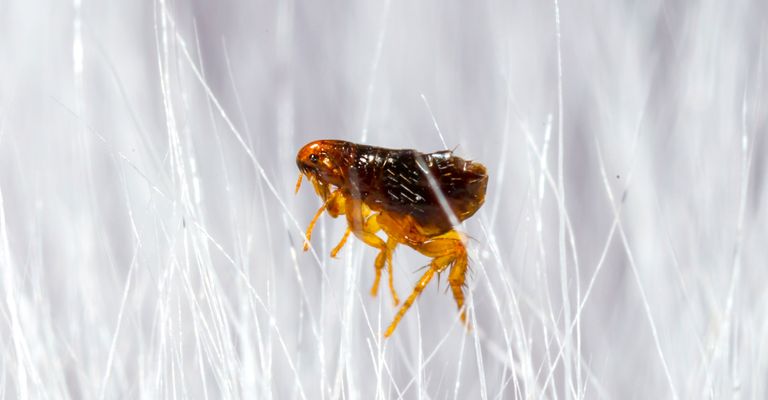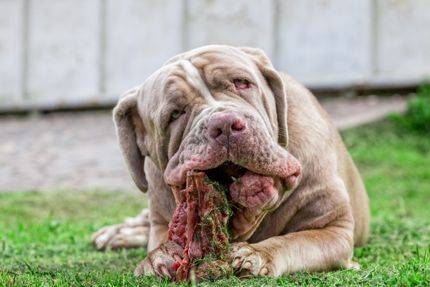Fleas unwanted - What to do when it itches constantly?
Your four-legged friend suffers from itching and scratches incessantly? One of the reasons for this could be fleas. If your pet is sensitive, even a small infestation is enough to cause itching, especially on the belly and paws as well as at the base of the tail. You need to know that fleas can really cause a lot of trouble for your dog. In addition to scratching, dogs comb through the fur with their teeth and start licking themselves all the time.

Fleas in dogs - how to recognise the parasites
When combing through the coat with a comb, you will find flea droppings and this is always proof that your pet has fleas. For every flea you find in your dog's fur, you can expect 60 to 100 fleas in the area. This makes prompt and efficient treatment all the more important. Fleas from dogs are capable of jumping far. One meter or more - no problem for the pests. What's more, they are not choosy, they also infest other animals and even us humans.
Risks of flea infestation
If your dog has fleas, you must react immediately. Untreated flea infestation can cause various diseases:
- Flea allergy
- Flea eczema
- Inflammation
- Skin irritations
- Hair loss
- Transmission of a tapeworm by a flea
Prophylaxis and targeted flea control
Prevention is better than cure, this is not only true for us dog owners, but also for the animal. There are various preparations available in the trade that prevent or combat a parasite infestation. The most common means are:
- Sprays
- drops
- Chewable tablets
- Collars
- Spot-on preparations
The term spot-on preparations refers to all products that are applied externally to the dog's skin and coat. These include sprays, drops and the collars, which have the advantage that they are also effective against ticks.
Chewable tablets have a different mode of action. They are not applied externally like the spot-on preparations, but the dog has to swallow them. The advantage is that there is no active ingredient on the fur and you do not have to be careful that your dog licks it off.
The disadvantage of the chewable tablet, however, is that the flea must first bite your four-legged friend in order to get to the active ingredient. However, since infectious diseases can be transmitted during the bite, it is possible that your dog will become ill despite the administration of the tablets.
Which flea medication you choose for your dog depends, among other things, on your dog's activities. If your dog is a real water rat who loves to swim and is magically attracted to every puddle, drops or sprays, if they are not 100 percent waterproof, will not be the best choice.
The dog has fleas - The environment must also be treated
Just treating the dog isn't enough, unfortunately. To permanently get rid of the pesky lodgers, there's some work waiting for you:
-
thorough vacuuming
-
wash dog blankets, upholstery and plush toys at least 60 degrees
-
environmental sprays
-
Fogger
If your dog suffers from a heavy flea infestation or if you are already struggling with a flea infestation, it is recommended to treat your pet with a combination preparation which kills adult fleas and at the same time prevents them from reproducing.









































